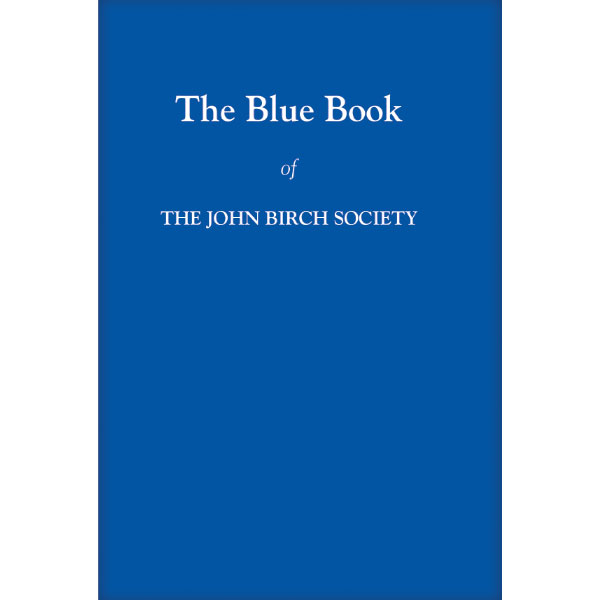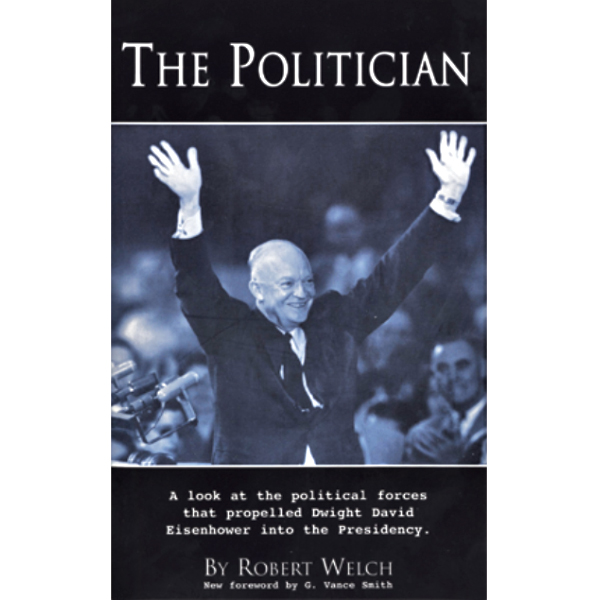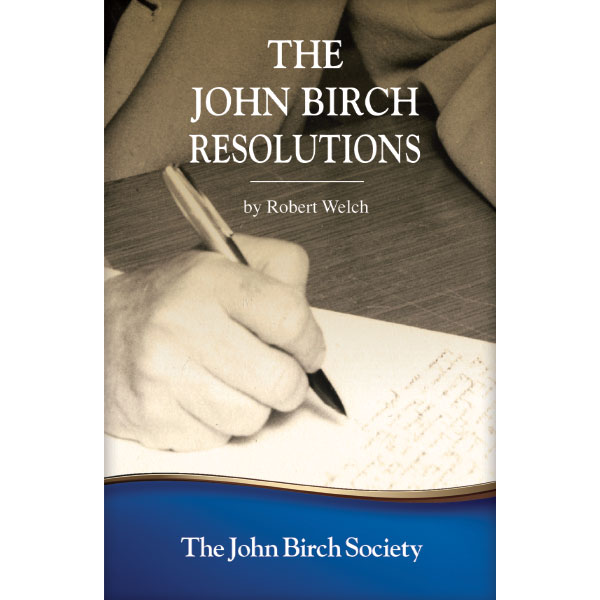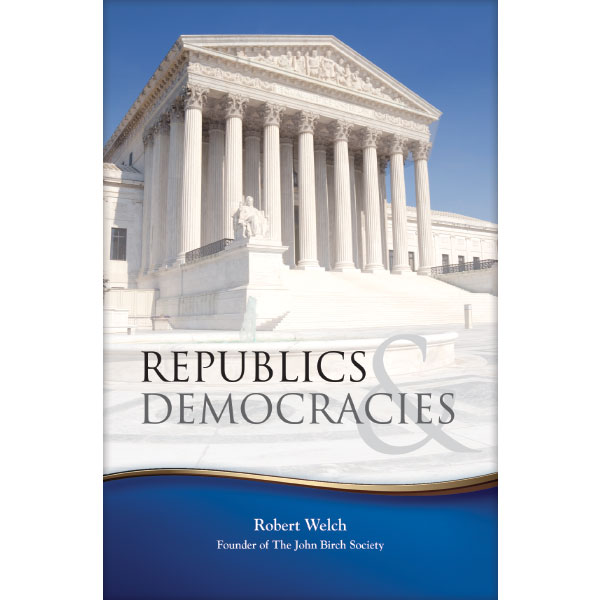
Founder: Robert Welch
Our Founder: Mr. Robert Welch was a true genius, in every sense of the word. He began reading at age two, tackled algebra at age six, read all nine volumes of John Clark Ridpath’s formidable History of the World at age seven, and entered the University of North Carolina at age 12, graduating at 16.
He was a true “Renaissance Man,” a world traveler, conversant in several languages, and an avid lifelong student of history, language, philosophy, economics, mathematics, science, geography, chess, poetry, classical literature, politics and other subjects.
Who was Robert Welch?
You may have eaten a Sugar Daddy candy bar at one time, but did you know that the candy was invented by The John Birch Society’s founder Robert Welch 33 years before he created the JBS? After manufacturing candy, Welch saw a greater need than enjoying leisure time: combating the evil forces that threaten our country, freedom, and lives.
And he did just that! By forming an organization that seeks men and women of good character, humane conscience, and religious ideals, America would be much different today without the influence of Robert Welch.
Bio: Robert Welch
At an age when most people are enjoying their retirement, Robert Welch decided to forego a life of leisure and create an organization to promote what he saw as ideals of Americanism in order to battle the overwhelming wave of communism he saw taking over numerous countries. He had already seen communism’s prominent influence in America throughout his lifetime.
While his detractors would have rather seen Robert Welch sit idly by in a rocking chair, he would have none of it. He devoted the rest of his life from age 58 on to help secure to future generations the freedoms he had enjoyed, and to give them the educational tools they would need to use to hold onto those freedoms.
He recognized and was fond of saying that “All we need to succeed is sufficient understanding.” Based on this, JBS was founded as a member-based educational organization designed to reach out to others to educate them on the original intent of the founding fathers, getting back to the Constitution, and why the United States was established as a Republic and not a democracy. He had a knack for boiling down complex ideas, thoughts, and problems into easily understood stories and solutions. As a voracious reader, learner, and man of high intellect, this came naturally to him.
A child prodigy, he entered high school at age 10 and graduated near the top of his class two years later. He then entered the University of North Carolina and graduated in 1916 at age 16. Next, in the midst of World War I, he began studies at the U.S. Naval Academy in Annapolis. When World War I ended a couple years later, he left the Naval Academy and dipped his creative toe into journalism, becoming a syndicated columnist. A short time later, he decided to take a Merchant Marine position. Unfortunately, Congress ended the program seven days before he was to leave. He then knew he had to find an occupation that would allow him to flourish while at the same time permitting him to make time for his academic interests.
In the fall of 1919, he enrolled in Harvard Law School to learn the free enterprise system. By 1922, he had had enough of the school and Marxist Professor (and later Supreme Court Justice) Felix Frankfurter. He left Harvard and launched the Oxford Candy Company. In 1926, he invented the Sugar Daddy candy and sales skyrocketed. He left the company he worked so hard to build after a dispute with management and started again. Eventually, he ended up working for his brother at the James O. Welch Company from 1935 until he “retired” in 1956. Two years later he founded The John Birch Society.
He had an extremely sharp memory, which enabled him to recite poetry for hours that he had last read 50 years earlier! But that memory and his very deep knowledge of all things historical could also be a hindrance, for he could hardly give a short answer to a question, which tended to infuriate those in the media looking for quick sound bites. He guided JBS through its first three decades until his passing in 1985. There is so much more to Robert Welch than can be provided in this short account. To those who knew him and worked with him, Robert Welch was truly a fascinating and loving man who wanted nothing more than to preserve freedom and future prosperity for later generations. We invite you to learn more about him by reading The Blue Book, The Politician, The John Birch Resolutions, and Republics & Democracies.





